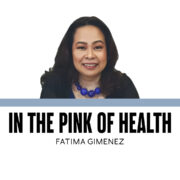The rising TikTok pharma crisis

I was scrolling through TikTok one evening and stumbled on a video promoting an herbal product that claimed to “prevent pregnancy naturally,” even going as far as saying, “you won’t get pregnant even if your boyfriend fails to pull out.”
What alarmed me most wasn’t just the misleading claim and irresponsible messaging; it was that with one click on the yellow basket, users can instantly buy the product with no consultation and prescription.
As a licensed pharmacist, I feel concerned. The product had no scientific basis and no safety guarantee. It was being sold under the illusion of being “natural,” but without any clinical evidence or legal compliance.
What’s more troubling is that the sellers are not licensed pharmacists and doctors. They have no formal medical training, and yet they are promoting products that can cause serious harm, particularly to minors who are the most vulnerable sector online.
The problem doesn’t stop with unverified herbal pills. TikTok and other platforms are flooded with unregistered health and cosmetic products. Many don’t even follow basic labeling laws in the Philippines.
Out of curiosity and concern, I purchased an eyebrow product from one of these online sellers. When it arrived, the entire label was in Chinese characters. No English or Filipino translation. No manufacturer information. No safety warnings. That alone violates basic consumer protection laws.
I also bought a popular facial product promoted by several celebrities and influencers. It had a chic packaging and thousands of reviews, but when I inspected it closely, there was no complete address of the manufacturer. For all we know, these products could contain mercury or cancer-causing ingredients.
These are not minor oversights. Labels exist for a reason: to ensure safety, transparency, and accountability. If something goes wrong, like an allergic reaction, chemical burn, or long-term organ damage, who will take responsibility?
This issue is especially dangerous because it preys on young people, many of whom turn to TikTok for guidance on health, beauty, and sexuality. But instead of education, they’re fed a stream of misinformation, unsafe remedies, and unverified products.
All of these come at a time when the Philippines is facing a surge in HIV cases, particularly among young Filipinos. In the absence of open, safe, and proper education, the youth are turning to influencers, not experts, and being exploited in the process.
I’m choosing to speak out now because I’ve seen this pattern before. Years ago, I raised concerns about the unchecked and rampant sale of vapes and flavored e-cigarettes, products that were aggressively marketed to the youth. At the time, warnings were dismissed. Today, we’re seeing rising cases of vape-related lung illnesses and the early onset of respiratory conditions in young people.
If we continue to ignore this, we risk a full-blown public health disaster. We are looking at a possible increase of cancer cases in the Philippines, reproductive health problems such as infertility, multiple organ damage, lower life expectancy, among others.
The Food and Drug Administration must intensify the monitoring of digital platforms and enhance its regulations and accreditation requirements for online pharmacies and sellers.
The Health Department should launch education campaigns to correct health misinformation online. The Department of Trade and Industry, for its part, must ensure that product labeling laws are enforced across e-commerce platforms, while the Education Department must incorporate digital health literacy in schools.
The Department of Information and Communications Technology should partner with platforms like TikTok, Shopee, and Lazada to strengthen content moderation and develop technological safeguards against the spread of health-related misinformation and the sale of unregistered products. Meanwhile, the Justice Department and the Philippine National Police Anti-Cybercrime Group should go after illegal sellers exploiting Filipino consumers.
Above all, we need an interagency task force, a unified effort that brings together health, trade, education, communications, and law enforcement to respond before it becomes too late.
Let us not abandon the very generation that needs guidance the most. This isn’t just about illegal products, it’s about trust, safety, and the future of public health in the digital age.
—————-
Teresa May Bandiola is a licensed pharmacist, academic, YA author, and health advocate. She is also the voice behind the podcast “Stay True, Stay Empowered,” a space for honest conversations on empowerment, health, and the Filipino experience.

















